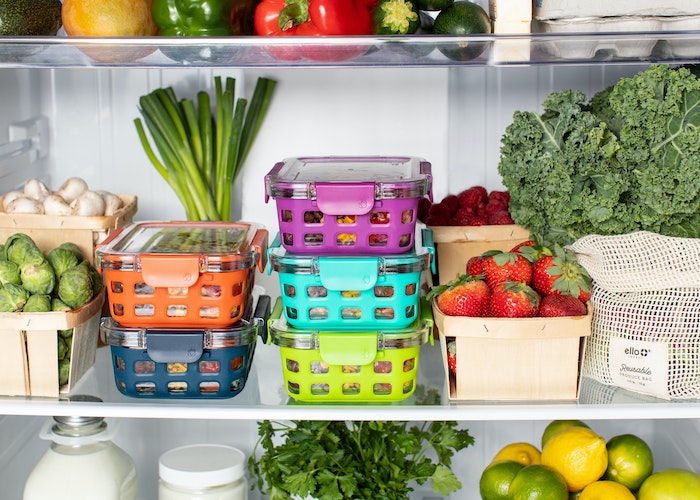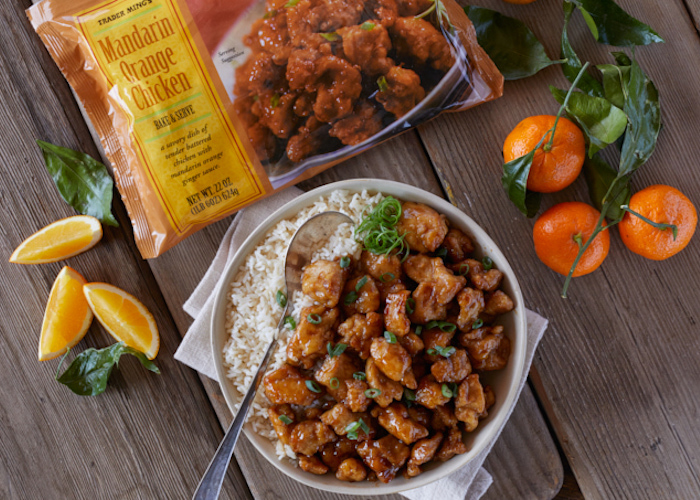7 Tips For Meal Planning On A Budget — Without Sacrificing Variety

If you’ve spent any time on this site — or Reddit, or Buzzfeed, or Pinterest, or any number of recipe blogs — you might be familiar with the concept of the Sunday Meal Prep. The idea is simple: prepare large batches of food in bulk on Sunday so that you can save time and money later in the week and have home-cooked meals with minimal assembly. Just reheat, toss on a plate, and you’re good to go.
It’s appealing if you are a busy person on a budget. Cooking from home is a cheap and obvious way to save money and eat a little bit healthier. Even though giving up avocado toast won’t buy you a house, skipping Seamless in favor of homemade black bean soup, meatball subs, or roast chicken will give your savings some extra cushion in the long run.
But if don’t cook often, and you don’t like the idea of eating the same chicken veggie rice bowls every day, meal prep might seem like too much work for too little payoff. I understand that sentiment, and I certainly get recipe fatigue. But I’ve also been meticulously prepping my meals at home for over three years, and have developed a few techniques to make it work for me.
1. Give yourself a “restriction.”
The sheer number of things I could make in any given week is overwhelming, so to make planning easier, I try to give myself a few restrictions: I base my plan around what’s on sale at my local grocery stores, and I make most of my meals vegetarian. The limitations make it easier for me to structure my plan without getting analysis paralysis. They also keep me from overspending at the store.
2. Structure your plan one “tentpole” recipe.
When I’m doing my weekly meal planning, I find it easiest to start by coming up with lunches first. I’ll choose a lunch that I can eat four or five days a week that I know I won’t get sick of. For me, this is usually a stacked salad in a mason jar or some kind of soup. I buy everything I need for the recipe, and anything I have leftover, I’ll work into my meals for the rest of the week. The leftover onion and celery from my chicken salad can be diced up with carrots and form the base of a spicy lentil red pepper soup; leftover parsley from tabouli can be minced and stirred into Greek yogurt with lemon and garlic for a creamy, savory dressing.
3. Base your plan around versatile ingredients.
The Trader Joe’s sauces and marinades aisle is my personal happy place, but I can’t tell you how often I buy a jar of something, use a tablespoon, and forget about it in the back of my fridge. The same goes for lesser-used fresh herbs. That’s why I try to make my meals using ingredients I can use in different kinds of dishes. Diced tomatoes can be used in tofu curry, chicken cacciatore and mushroom pizza. Cilantro (if you eat it) adds a burst of freshness to curries, burritos, salads and even sandwiches.
4. If you can’t cook ahead, chop ahead.
There are some meals I don’t enjoy eating reheated: steak, potatoes, any kind of poultry. I want to cook these things fresh — but to save myself time later in the week, I’ll use my Sunday afternoon to do everything but the cooking. I chop mushrooms, dice onions, stem kale, mix marinades, and have everything stashed in Tupperware and ready to go when I come home.
5. Vary your cuisines to combat recipe fatigue.
Maybe it’s just me, but I can’t stand the thought of eating the same three meals five days in a row. I’m fine to repeat lunches, and could eat a bagel for breakfast every damn day, but dinner is where I draw the line. To prevent boredom, I try to change up the flavor palate between lunch and dinner. If I make chickpea minestrone for lunch, I won’t have pizza or tomato-heavy dishes for dinner — instead, I’ll go for barbecue meatloaf, bulgogi beef, or falafel wraps.
6. Develop your pantry over time, and make use of your freezer.
If you have nothing in your pantry, meal prep can be expensive. The more you cook, the more spices you have, the more random ingredients you accumulate, the easier it becomes and the more creative you can be. Commit to putting together a good spice collection, and you will go far. And don’t be afraid to use your freezer. Fresh herbs, spices, and ginger can be frozen and will add brightness and dimension to your dishes, no trips to the store required. And if you’re not sure what to do with the last few sips of red or white wine, I recommend pouring them into an ice cube tray. Wine will elevate your soups and sauces from fine to great, even if it’s in the form of a cube from your freezer.
7. Don’t expect yourself to change entirely.
Becoming a machine-efficient meal planner did not fix everything about myself. I did not become a morning person. I did not kick my hankering for vending machine Pop Tarts. I did not escape the vicious cycle of buying an onion, using half of it, depositing the other half in the crisper, forgetting about it, and buying a new onion to begin the cycle again. It is only in accepting these flaws that I have become a good meal planner. I know that I must do 100% of my meal planning in the evening because my grumpy, barely-awake self cannot handle portioning soup into Tupperware in the morning. I know if I bulk buy Poptarts online and hide some at the back of my desk, I won’t spend a dollar on the ones in vending. And I know that orphaned half-onions last a long time in the crisper, and can be caramelized and mixed into roast sweet potatoes to create an indulgent side dish that tastes like you would not believe, that will make your coworkers regret their $12 Chipotle orders and wish they were eating what you are eating.
Kelly Catchpole is a writer living in Brooklyn. Her favorite animal is the pigeon, but any bird will do. You can follow her on Twitter here.
Image via Unsplash




